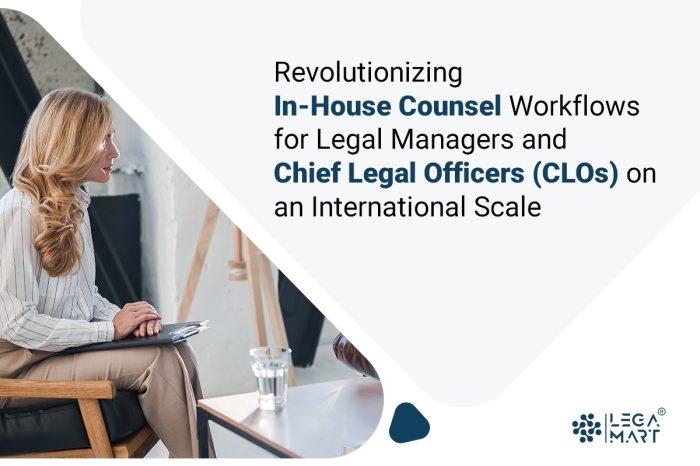Commercial and Business Law
Corporate and Company
One of the operational challenges faced by businesses wanting to go internationally is the legal environment for international business & corporate.
All the data indicate that now is a highly appealing time for global expansion. The worldwide firm & corporation numbers of top exporting nations like the United States, the Netherlands, and China have increased by more than 20% (23%, 26%, and 22%, respectively, according to Trade Map).
The benefits of international growth are numerous, ranging from increased sales and access to new consumer demographics to the development of a brand’s leadership and power.
Yet businesses must also overcome a number of obstacles when they internationalize. This restriction is removed by being aware of how to deal with the key legal difficulties in international business, which opens the door to success on a worldwide scale made possible by the digitalization of the economy.
-
Employment law
-
Intellectual property
-
Contracts
-
Acquisitions of businesses
-
Taxes
-
Data security
-
How businesses might respond?
Employment law
Drafting contracts, reviewing the rules governing pay and other working conditions for employees, and being aware of workers’ rights at the collective bargaining level in each country are just a few of the legal concerns that need to be resolved with regard to hiring.
Intellectual property
This covers matters relating to the company’s intellectual property protection, including the utilization of patents, trademark protection, domain name protection, and copyright protection.
Contracts
Beyond employee contracts, there are several laws that businesses entering a new market must be aware of in order to create legal agreements that are safe for both parties. To provide assurance, the business should make sure contracts are designed properly.
Acquisitions of businesses
The acquisition of another company is one of the most popular methods of corporate & international expansion. Legally speaking, this is a difficult process that demands complete openness, removing, for instance, any potential linguistic and cultural hurdles that frequently appear in companies with international aspirations.
Taxes
The country that a corporation or company is located in also affects the tax laws. If the business is global in scope, professional counsel should be obtained.
Data security
There are initiatives underway to harmonize data protection laws (as in the case of the European GDPR framework). But in practice, adhering to national data privacy regulations is still one of the most important legal considerations for businesses doing business internationally.
How businesses might respond to legal concerns in global business & corporations?
The legal issues in international business discussed in the paragraphs above can be broken down into two main situations: first, you should have specialized legal advice to make sure you’re following the law; and second, you should be able to communicate clearly and accurately when drafting any legal texts. Companies can employ a variety of professional services in this respect to effectively resolve the legal problems they encounter when conducting international business.
The case of intellectual property stands out as being particularly interesting. Patent and IP services for international businesses can take care of the registration of patents and trademarks in new markets and manage the correct translation of patents, ensuring that this issue does not become a barrier to the company’s international expansion.
On the other hand, there are also legal translation services, which deal with the creation of legal materials (such contracts), insuring familiarity with the legal framework in the target nation, and providing the thoroughness necessary for this sort of translation. Sworn translation, which goes one step farther and verifies that the translation of a text is exactly similar, complements this service (an essential service when you need to authenticate texts with official bodies in the host location).
Companies dealing with legal challenges in global business & corporate have specialized partners to help them advance internationally.
Find Best Lawyers and Legal help in
Latest Articles
Tell us more about your problem.
Please give a brief description about what it is you need to talk to our lawyers about ?
Frequently Asked Questions
How can legal professionals help corporations to develop and implement effective corporate governance policies and practices, particularly in light of the increasing importance of environmental, social, and governance (ESG) issues?
Legal professionals can help corporations develop and implement effective corporate governance policies and practices by:
Providing guidance on relevant laws and regulations: Legal professionals can provide guidance on the legal and regulatory requirements related to corporate governance, including those related to ESG issues.
Conducting risk assessments: Legal professionals can conduct risk assessments to identify potential areas of vulnerability for the corporation and develop strategies to mitigate these risks.
Developing policies and procedures: Legal professionals can assist with the development of policies and procedures that address specific aspects of corporate governance, including codes of conduct, whistleblower policies, and board oversight mechanisms.
How can legal professionals help multinational corporations navigate the complex process of corporate registration in foreign jurisdictions, particularly in light of the potential challenges and risks associated with cross-border operations?
Legal professionals can help multinational corporations navigate the complex process of corporate registration in foreign jurisdictions by:
Providing guidance on local laws and regulations: Legal professionals can provide guidance on local laws and regulations related to corporate registration, including those related to licensing, taxation, and labor laws.
Navigating cultural differences: Legal professionals can help corporations navigate cultural differences that may impact the corporate registration process, including differences in business practices, customs, and language.
Managing legal risks: Legal professionals can help corporations manage legal risks associated with cross-border operations, including those related to intellectual property, data protection, and regulatory compliance.
What are the potential risks and liabilities associated with corporate registration in foreign jurisdictions, and how can legal professionals help clients to manage these risks and protect their interests?
The potential risks and liabilities associated with corporate registration in foreign jurisdictions can include:
Compliance risks: Corporations must comply with local laws and regulations related to corporate registration, which can be complex and subject to change.
Taxation risks: Corporations may be subject to local taxation regimes that are different from those in their home country, which can impact their bottom line.
Legal exposure: Corporations may face legal exposure related to intellectual property, data protection, and regulatory compliance in foreign jurisdictions.
Legal professionals can help clients manage these risks and protect their interests by:
Conducting due diligence: Legal professionals can conduct due diligence on relevant laws, regulations, and business practices in the foreign jurisdiction to identify potential risks and liabilities.
Drafting clear, enforceable agreements: Legal professionals can draft clear, enforceable agreements that address specific legal and business risks associated with corporate registration in foreign jurisdictions.
Providing ongoing legal support: Legal professionals can provide ongoing legal support to help corporations navigate legal and regulatory issues as they arise.
If I want to register a corporation in multiple countries, what are the biggest challenges I am likely to face, and how can I overcome them?
Some of the biggest challenges associated with registering a corporation in multiple countries include:
Compliance with local laws and regulations: Corporations must comply with local laws and regulations related to corporate registration in each country where they operate, which can be complex and subject to change.
Cultural differences: Corporations must navigate cultural differences that may impact the registration process, including differences in business practices, customs, and language.
Coordination and communication: Corporations must coordinate and communicate effectively across multiple jurisdictions to ensure that they comply with all relevant laws and regulations.
To overcome these challenges, corporations should work closely with experienced legal and financial professionals who understand the nuances of local laws and regulations, as well as the cultural and business practices of each country in which they operate. Effective communication and coordination are key to successfully navigating the corporate registration process in multiple countries
How can I ensure that my corporation’s registration is compliant with all relevant laws and regulations in the countries where it operates?
Ensuring compliance with all relevant laws and regulations in the countries where your corporation operates can be a complex process, but there are several steps you can take to help ensure that your registration is compliant:
Conduct thorough research: Before registering your corporation in a new country, conduct thorough research on the local laws and regulations related to corporate registration. This may include reviewing legal resources, consulting with local legal professionals, and engaging with relevant government agencies.
Engage experienced legal professionals: Engage experienced legal professionals who understand the legal and regulatory requirements of the countries in which you operate. They can provide guidance on how to navigate local laws and regulations, and can help you develop a compliance strategy.
Develop a compliance plan: Develop a comprehensive compliance plan that addresses all relevant legal and regulatory requirements in the countries where you operate. This may include developing policies and procedures related to taxation, employment law, data protection, and other legal requirements.
Monitor changes in the legal and regulatory landscape: Keep up-to-date with changes in local laws and regulations related to corporate registration, and adjust your compliance plan as needed to ensure ongoing compliance.
Train employees: Ensure that your employees are trained on the relevant legal and regulatory requirements in the countries where they operate. This may involve providing training on local employment law, data protection, or other legal topics.
By taking these steps, you can help ensure that your corporation’s registration is compliant with all relevant laws and regulations in the countries where it operates.
What are the key differences in corporate governance practices across different countries, and how can companies navigate these differences when operating internationally?
Corporate governance practices can differ significantly across different countries, and understanding these differences is important for companies operating internationally. Some key differences in corporate governance practices include:
Legal frameworks: The legal framework that governs corporations can vary widely between countries, and can impact issues such as shareholder rights, board composition, and director liability.
Cultural norms: Corporate governance practices can also be influenced by cultural norms, including attitudes towards transparency, accountability, and hierarchy.
Regulatory requirements: Different countries may have different regulatory requirements related to corporate governance, including requirements related to financial reporting, disclosure, and compliance.
To navigate these differences when operating internationally, companies should take the following steps:
Conduct a thorough analysis of local laws and regulations related to corporate governance in each country where they operate.
Understand the cultural norms and expectations related to corporate governance in each country, and adjust corporate governance policies and practices accordingly.
Stay up-to-date with changes in local laws and regulations related to corporate governance, and adjust corporate governance policies and practices as needed.
Develop strong relationships with local stakeholders, including regulators, investors, and other key actors in the corporate governance landscape.
By taking these steps, companies can help ensure that their corporate governance policies and practices are effective and compliant in all of the countries where they operate
What are the tax implications of registering a corporation in different countries, and how can I minimize my tax liability while remaining compliant with local laws?
The tax implications of registering a corporation in different countries can vary widely depending on the local tax laws and regulations. To minimize tax liability while remaining compliant with local laws, companies should consider:
Engaging experienced tax professionals: Engage experienced tax professionals who understand the tax laws and regulations of the countries where you operate. They can provide guidance on tax planning strategies that may help to minimize your tax liability.
Understanding local tax laws: Understand the local tax laws and regulations in each country where you operate, including those related to corporate income tax, value-added tax (VAT), and withholding tax.
Structuring your business appropriately: Consider structuring your business in a way that minimizes your tax liability, such as by creating separate legal entities in different countries or utilizing tax treaties between countries.
Avoiding aggressive tax planning: While it is important to minimize tax liability, it is also important to avoid aggressive tax planning that could lead to non-compliance or reputational damage.
By taking these steps, companies can help ensure that they minimize their tax liability while remaining compliant with local tax laws and regulations.
Are there any special considerations I need to take into account when registering a corporation in a country that has a different legal system from my home country? For example, if I am a US-based business owner, what do I need to know about registering a corporation in China or Japan?
Yes, there are several special considerations that you need to take into account when registering a corporation in a country that has a different legal system from your home country. Some key considerations include:
Local legal requirements: Understand the local legal requirements for registering a corporation in the country where you plan to operate, including those related to corporate registration, taxation, and labor laws.
Cultural differences: Be aware of cultural differences that may impact the registration process, including business practices, customs, and language.
Engage experienced legal professionals: Engage experienced legal professionals who understand the local legal system and can provide guidance on navigating the registration process.
Regulatory compliance: Ensure that your corporation complies with all relevant local laws and regulations, including those related to data protection, intellectual property, and other regulatory requirements.
By taking these steps, you can help ensure that your corporation is registered compliantly in a country with a different legal system from your home country.
Can you provide an overview of the process for registering a corporation in Europe, including any potential obstacles and tips for success?
The process for registering a corporation in Europe can vary depending on the country where you plan to operate. However, in general, the process involves:
Determining the legal structure: Choose the appropriate legal structure for your corporation in Europe, such as a limited liability company (LLC) or a joint-stock company (JSC).
Registering the corporation: Register the corporation with the relevant government agency in the country where you plan to operate. This may involve submitting documents such as articles of incorporation, bylaws, and shareholder agreements.
Obtaining necessary permits and licenses: Obtain any necessary permits and licenses for your corporation to operate legally in the country where you plan to operate. This may include business licenses, tax registrations, and permits for specific activities.
Potential obstacles to registering a corporation in Europe may include variations in local laws and regulations, differences in cultural norms, and language barriers. To increase the chances of success when registering a corporation in Europe, companies should consider:
Engaging experienced legal and financial professionals: Engage experienced legal and financial professionals who understand the local laws and regulations, business practices, and cultural norms of the country where you plan to operate.
Conducting thorough due diligence: Conduct thorough due diligence on the local legal and regulatory environment, as well as the business practices and cultural norms of the country where you plan to operate.
Developing a comprehensive compliance plan: Develop a comprehensive compliance plan that addresses all relevant legal and regulatory requirements in the country where you plan to operate.
By taking these steps, companies can help ensure that they successfully register their corporation in Europe and comply with all relevant laws and regulations.
How can I determine which type of corporation (e.g., LLC, S corporation, C corporation, etc.) is best suited for my business needs, both domestically and internationally?
Determining the best type of corporation for your business needs can be a complex process, and it is important to consider both domestic and international factors. Some key factors to consider include:
Tax implications: Different types of corporations are subject to different tax rules, which can impact your bottom line.
Liability: Different types of corporations offer different levels of liability protection for owners and shareholders.
Ownership structure: Different types of corporations have different ownership structures, such as single-owner LLCs or publicly traded corporations.
Regulatory requirements: Different types of corporations may be subject to different regulatory requirements depending on the country where you plan to operate.
To determine the best type of corporation for your business needs, consult with experienced legal and financial professionals who can provide guidance on the specific factors that are most relevant to your business.
What are the legal requirements for incorporating and operating a company in the United Kingdom, China, South Africa, or Brazil؟
Incorporating and operating a company in the United Kingdom, China, South Africa, or Brazil is subject to specific legal requirements. Some key legal requirements include:
The United Kingdom: In the UK, companies must register with Companies House and file annual reports and financial statements.
China: In China, foreign investors must obtain approval from the Ministry of Commerce and comply with local laws related to corporate governance, taxation, and labor.
South Africa: In South Africa, companies must register with the Companies and Intellectual Property Commission and comply with local laws related to corporate governance, taxation, and labor.
Brazil: In Brazil, foreign investors must register with the National Registry of Foreign Capital and comply with local laws related to corporate governance, taxation, and labor.
These legal requirements can vary depending on the type of company and the industry in which it operates.
How do the laws in these countries affect corporate governance and shareholder rights?
The laws in different countries can have a significant impact on corporate governance and shareholder rights. Some examples of how the laws affect these areas are:
Corporate Governance: The laws in different countries may establish requirements for the composition of the board of directors, disclosure obligations, and other aspects of corporate governance. For instance, in the United States, the Sarbanes-Oxley Act establishes rules related to financial reporting and disclosure, while in Japan, the Companies Act sets out requirements related to board structure and director duties.
Shareholder Rights: The laws in different countries can also establish the rights of shareholders, including voting rights, dividend rights, and rights related to corporate transactions. For example, in the United Kingdom, shareholders have the right to approve major corporate transactions, while in Germany, shareholders have the right to elect members of the supervisory board.
Regulatory Oversight: Different countries may have different regulatory bodies overseeing corporate governance and shareholder rights. For example, in the United States, the Securities and Exchange Commission (SEC) has responsibility for enforcing securities laws and regulations, while in the United Kingdom, the Financial Conduct Authority (FCA) regulates the conduct of financial institutions and markets.
Understanding the local laws and regulations that govern corporate governance and shareholder rights is essential for companies operating in these countries. It is important for companies to engage experienced legal professionals who understand the relevant legal frameworks and can provide guidance on compliance, dispute resolution, and risk management as it relates to corporate governance and shareholder rights.
What are some common legal issues that arise in corporate and company law, and how can they be addressed?
There are many legal issues that can arise in corporate and company law. Some common legal issues include:
Compliance with laws and regulations: Companies must comply with a wide range of laws and regulations, including those related to corporate governance, taxation, employment, and data protection.
Contracts and agreements: Companies may encounter disputes related to contracts and agreements with suppliers, customers, or other parties.
Intellectual property protection: Companies must protect their intellectual property rights, including trademarks, patents, and copyrights.
Mergers and acquisitions: Companies involved in mergers and acquisitions may face legal challenges related to due diligence, financing, and regulatory compliance.
Shareholder disputes: Shareholders may have different views on corporate strategy, management, and compensation, which can lead to disputes.
To address these legal issues, companies should engage experienced legal professionals who understand the relevant legal frameworks and can provide guidance on compliance, dispute resolution, and risk management. Legal issues can be prevented by taking a proactive approach to identifying potential risks and implementing appropriate safeguards. It is important for companies to stay current on legal developments and changes in regulations that could impact their business.












